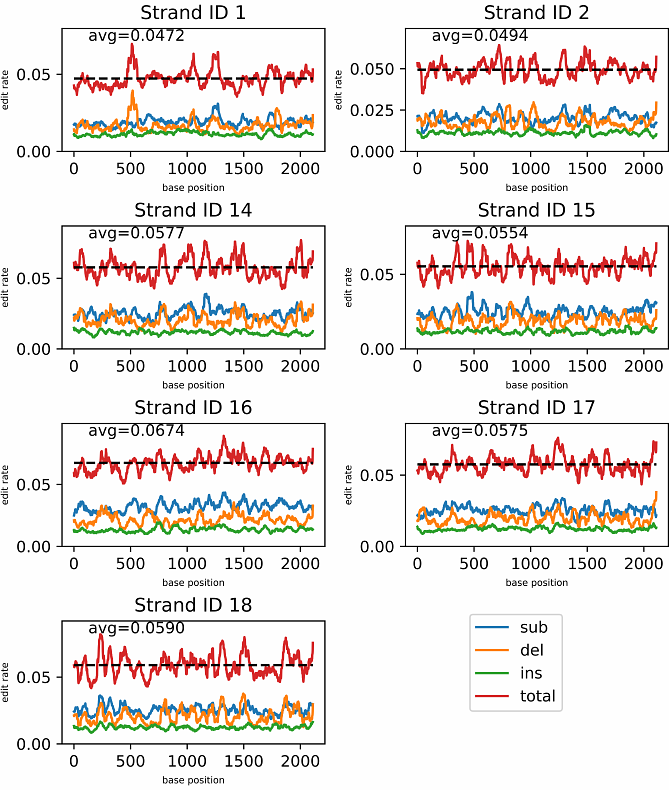Nanopore Decoding with Speed and Versatility for Data Storage

Nanopore Decoding with Speed and Versatility for Data Storage
Volkel, K.; Hook, P. W.; Keung, A. J.; Timp, W.; Tuck, J. M.
AbstractAs nanopore technology reaches ever higher throughput and accuracy, it becomes an increasingly viable candidate for reading out DNA data storage. Nanopore sequencing offers considerable flexibility by allowing long reads, real-time signal analysis, and the ability to read both DNA and RNA. We need flexible and efficient designs that match nanopore\'s capabilities, but relatively few designs have been explored and many have significant inefficiency in read density, error rate, or compute time. To address these problems, we designed a new single-read per-strand decoder that achieves low byte error rates, offers high throughput, scales to long reads, and works well for both DNA and RNA molecules. We achieve these results through a novel soft decoding algorithm that can be effectively parallelized on a GPU. Our faster decoder allows us to study a wider range of system designs. We demonstrate our approach on HEDGES, a state-of-the-art DNA-constrained convolutional code. We implement one hard decoder that runs serially and two soft decoders that run on GPUs. Our evaluation for each decoder is applied to the same population of nanopore reads collected from a synthesized library of strands. These same strands are synthesized with a T7 promoter to enable RNA transcription and decoding. Our results show that the hard decoder has a byte error rate over 25%, while the prior state of the art soft decoder can achieve error rates of 2.25%. However, that design also suffers a low throughput of 183 seconds/read. Our new Alignment Matrix Trellis soft decoder improves throughput by 257x with the trade off of a higher byte error rate of 3.52% compared to the state-of-the-art. Furthermore, we use the faster speed of our algorithm to explore more design options. We show that read densities of 0.33 bits/base can be achieved, which is 4x larger than prior MSA-based decoders. We also compare RNA to DNA, and find that RNA has 85% as many error free reads as compared to DNA.


